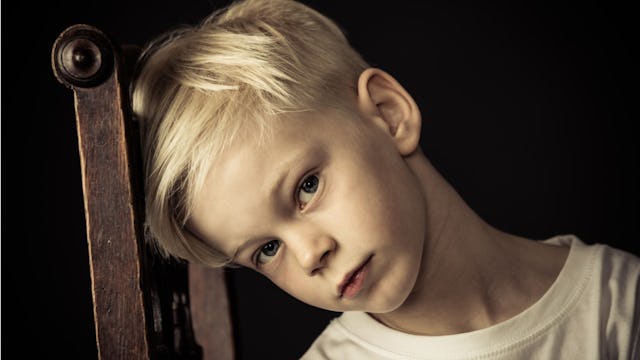We Need To Back Off And Give Introverted Kids The Space They Need To Thrive

There are some people for whom socializing and keeping busy is invigorating and truly feeds their souls. And then there are those of us who might enjoy that sort of thing sometimes, but who have limits for how extensively we can fill our days with social activities.
For some of us, these limits are strong and must be adhered to or else we start to feel highly stressed, overstimulated, and full-on strung out and depleted. It’s not that we hate people or anything like that. It’s just that people…well, exhaust us.
It took me years to realize that I was one of those highly sensitive souls for whom socializing and living a full, busy life was pretty much the opposite of what I needed or could tolerate, at least most of the time. And it took me even a bit longer to realize that my older son was much the same way — and that in order for him to function well, I needed to honor his limits and give him his space.
According to psychologists, being highly sensitive or introverted is an inborn trait, and it’s not a bad thing. It can often mean that you are finely attuned to the world around you and that you absorb it in a different and perhaps more intense way than others.
I can say that this is certainly the case for my son and me: We are both creative thinkers who wear our emotions on our sleeves (though we don’t always readily share them with the rest of the world). We both thrive by having a good balance of healthy social interactions and then a ton of time alone in quiet, people-free spaces to unwind and just be with our thoughts and ourselves.
When my son was a baby and toddler, I pretty much didn’t understand any of that. Like many moms, I wanted to give my baby the best start, and I thought that meant filling our days with interesting, engaging social and educational activities. (Yep, I was that bright-eyed, idealist, naïve first-time mama). We did music class, art class, library programs, and weekly playdates. Our schedule was jam-packed.
And if we were out for more than a couple hours, my son would cry. Scratch that — he’d scream. He would melt down, just lose it. At first, I had no idea why. It didn’t matter if he’d slept or napped well (though it was obviously worse if he hadn’t). He seemed to be telling me that something was upsetting him, but I didn’t know what.
I realize now that he was simply totally overstimulated and “peopled-out,” even as a small child. He just needed his space — both to process the world around him that he was just learning about, but also to just chill the heck out, on his own and in his own way.
The same is true today. And although it isn’t always easy or convenient, I have learned to honor that about him. So after a long day of school, I just let him chill for a half-hour or more in front of his computer, eating a snack. I don’t even try to make conversation with him then. On the weekends, we try to limit our activities and make sure lots of down time is included. (This works well for him and also for me. Win-win.)
It’s important to remember that all kids are different and need different things. My husband and younger son, for example, could busy themselves all day and night and end up feeling emotionally invigorated by the experience, even if it wears them out physically. My older son and I would need to banish ourselves to a dark room and hide under the covers for an hour if we spent our days that way.
It’s easy to compare your kid to other kids, to try to fit your kid into the mold of how “average” kids are supposed act or be. But you need to meet your kid where they are at and nurture them for who they are, however that looks.
And for the shy, introverted, sensitive kids out there, that’s going to mean that you need to give them a lot more space than you might think. A lot. It might mean limiting their social calendars or trimming their extracurricular activities.
It will mean leaving them alone pretty often — and not hovering. Especially as they get older, it will mean allowing them to figure out what they need and letting them come up with their own plans for how to make that happen.
Most of all, it means listening to your child’s needs without judgment. It means “holding space” for their emotions and giving them actual physical space when they need it. And it means trusting that in doing so, you are helping them reach their fullest, truest, most beautiful potential.
This article was originally published on